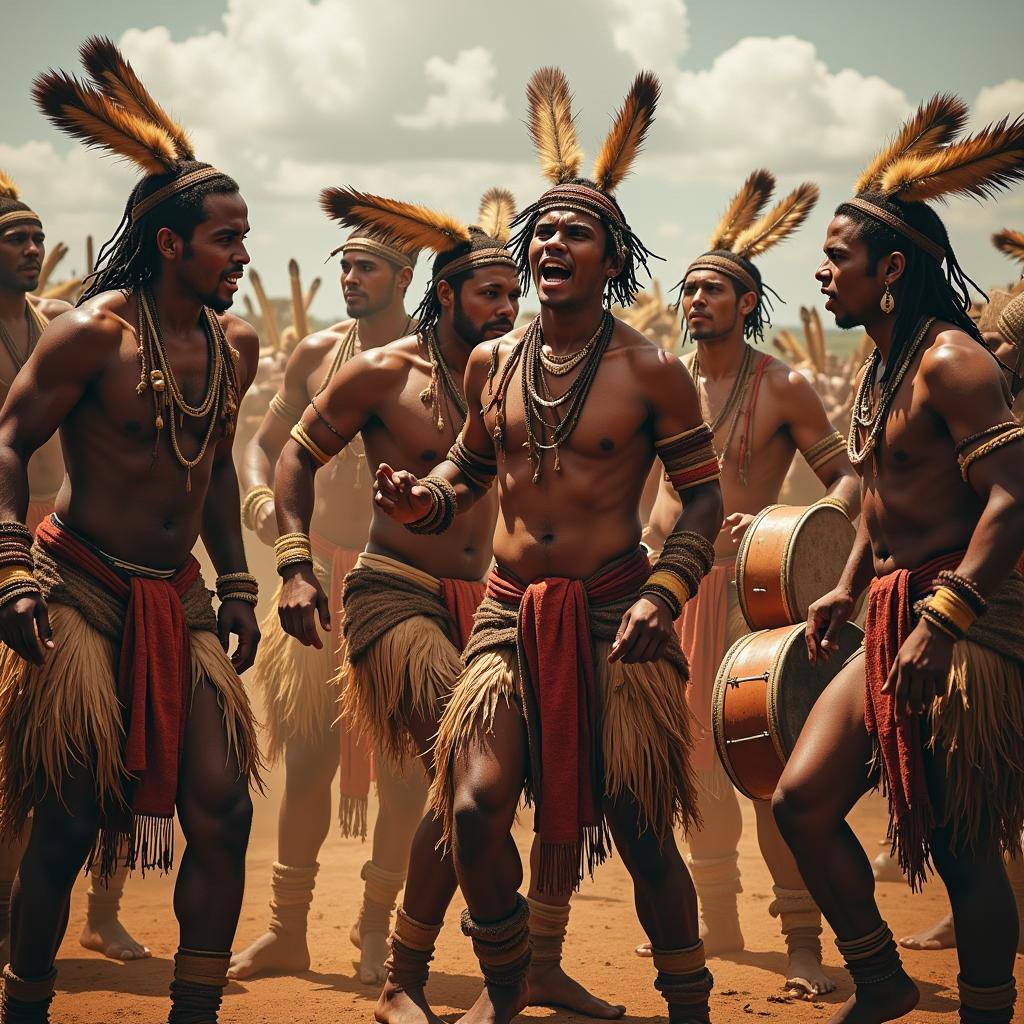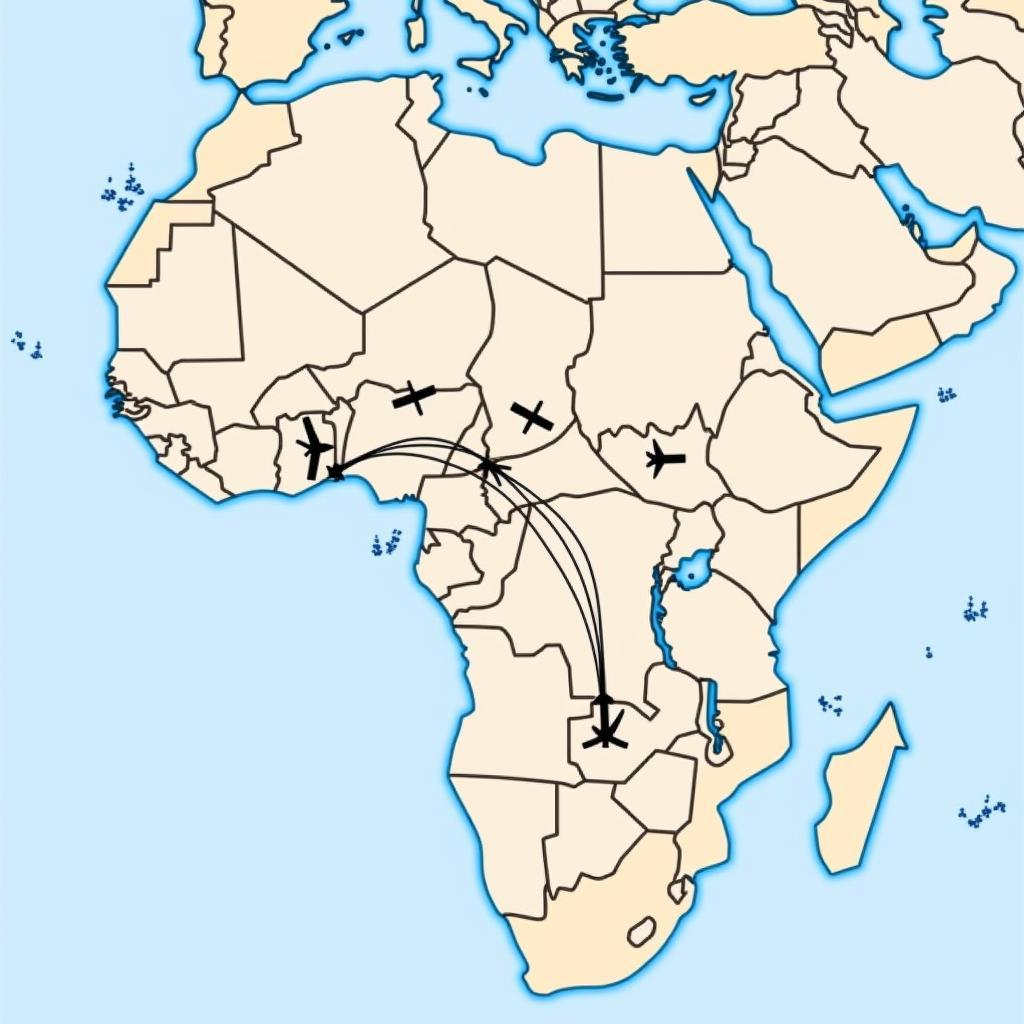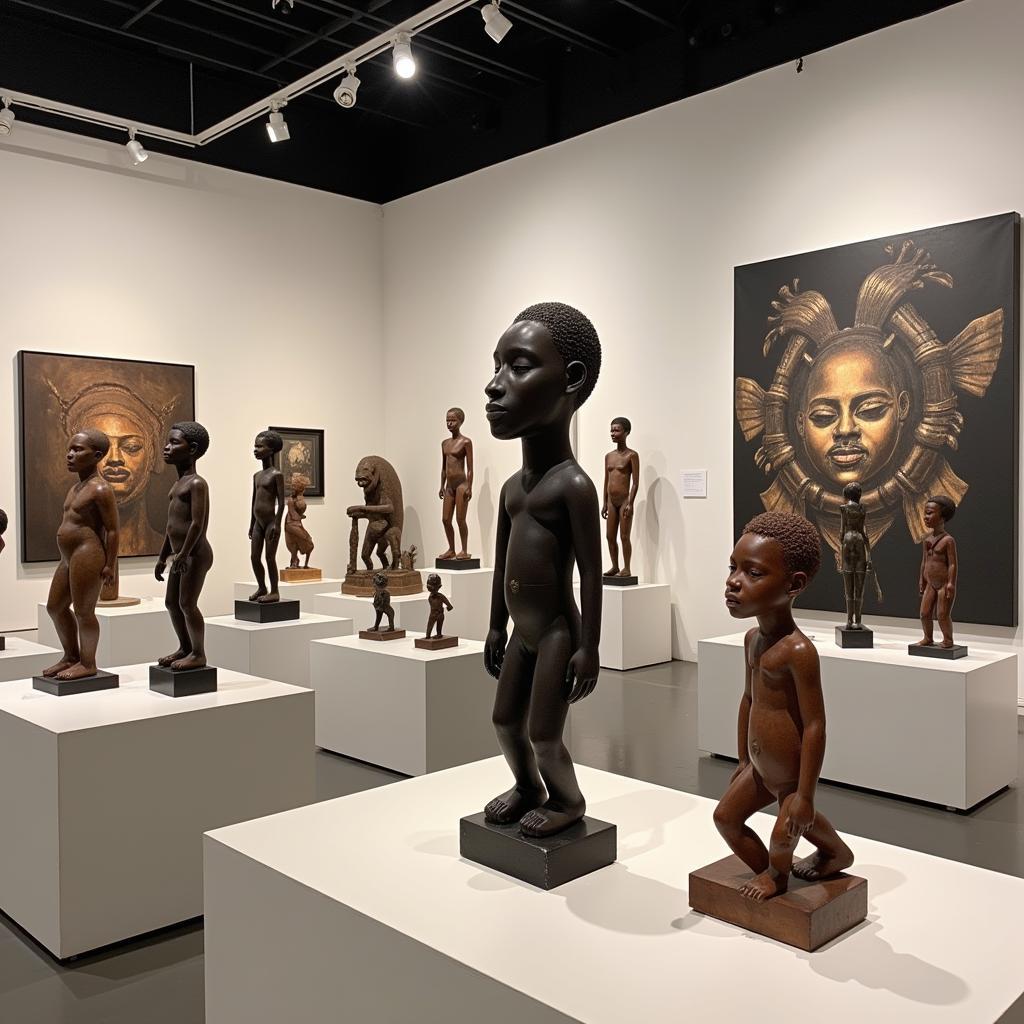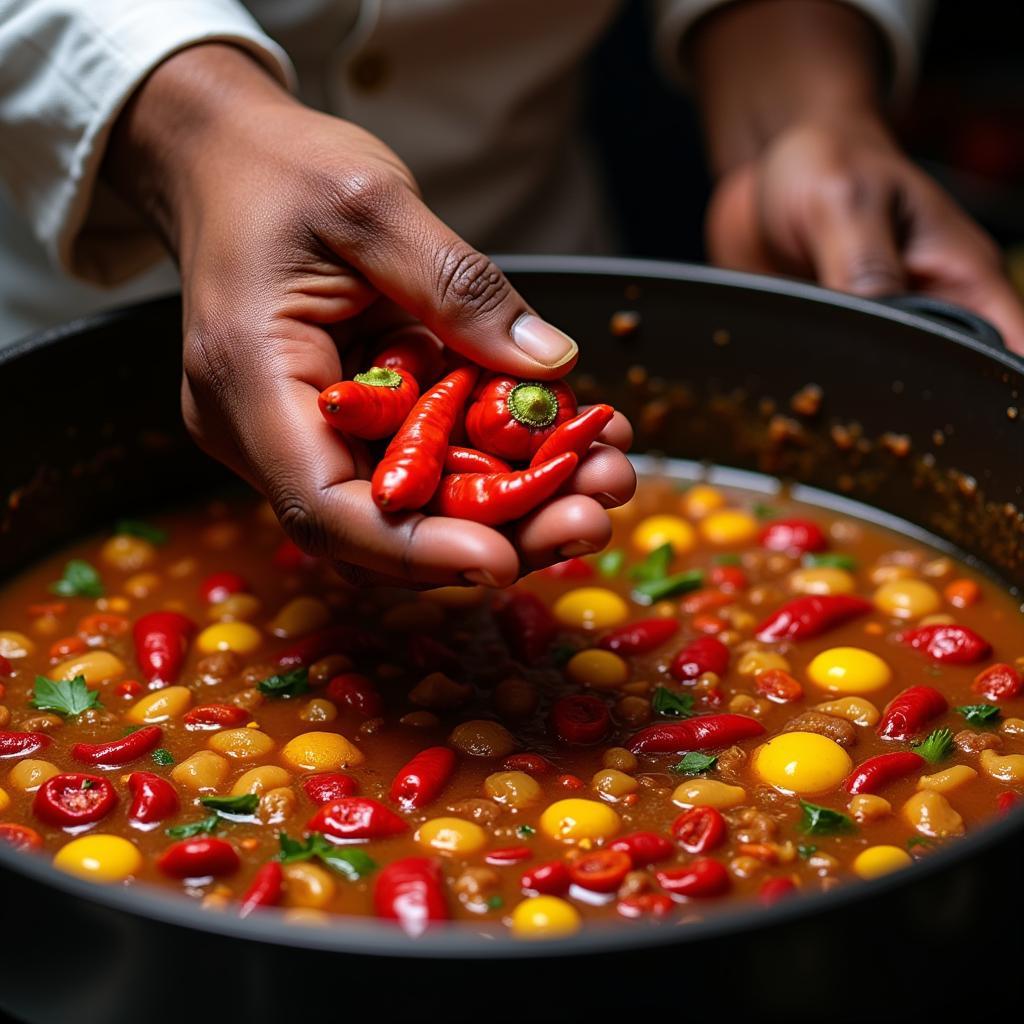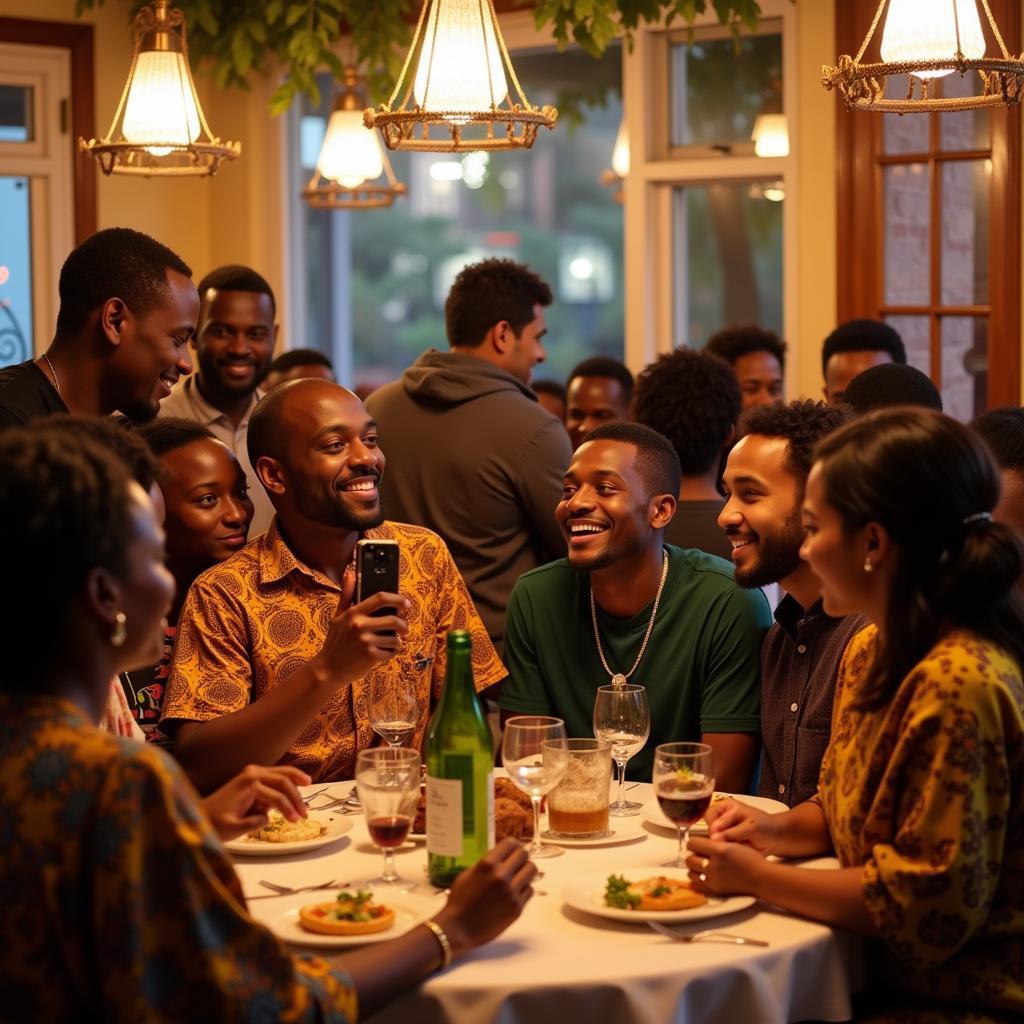Understanding the Term “African Fat Boys”: Challenging Stereotypes and Celebrating Diversity
The term “African Fat Boys” is problematic and can perpetuate harmful stereotypes. This article aims to explore the complexities of body image within diverse African cultures, challenging the oversimplification often present in media portrayals and promoting a more nuanced understanding of health and beauty. We’ll delve into the cultural significance of weight in some African societies, discuss the impact of Western influence, and emphasize the importance of respecting individual differences. After the introduction, you’ll find helpful links related to African culture, such as African boy and girl names.
Body Image and Cultural Significance Across Africa
Africa is not a monolith. It is a continent of 54 countries, each with its own rich tapestry of traditions and beliefs. Within these diverse cultures, perceptions of body image vary significantly. While in some communities, a fuller figure has historically been associated with prosperity and well-being, others prioritize slenderness. Generalizing about “African fat boys” ignores this rich tapestry of cultural nuances. It’s essential to recognize that weight, like any physical characteristic, holds different meanings in different contexts.
It’s also important to consider the historical context. In pre-colonial times, food scarcity in some regions meant that being larger could be a sign of resilience and survival. This association with abundance shifted with the arrival of colonialism and the introduction of Western beauty standards. Today, the complex interplay of traditional values and modern influences shapes how individuals and communities perceive body image.
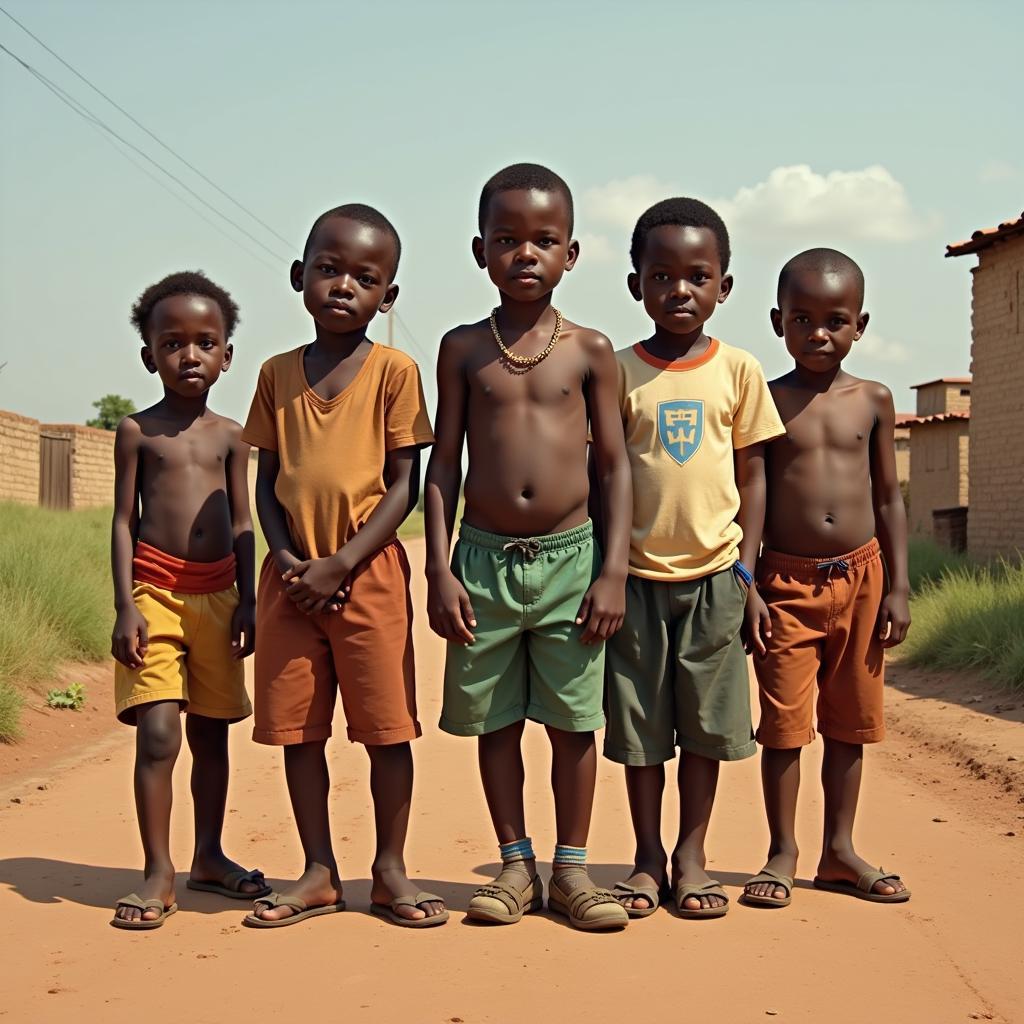 African Boys with Diverse Body Types
African Boys with Diverse Body Types
The Impact of Western Media and Globalization
The proliferation of Western media, particularly through television and social media, has significantly impacted beauty ideals across the globe, including Africa. The often-idealized portrayal of thinness as the epitome of beauty can contribute to body image issues and pressure to conform, particularly among younger generations. This can lead to unhealthy practices such as extreme dieting and a rejection of traditional cultural values surrounding body image. African Boy Hair Style shows the diversity even in hairstyles.
Health and Well-being: Beyond Size
While celebrating diversity in body shapes is crucial, promoting health and well-being remains paramount. This doesn’t mean adhering to a single, Westernized ideal of thinness, but rather focusing on a holistic approach to health that incorporates balanced nutrition, regular physical activity, and mental well-being. Addressing issues like malnutrition and access to healthcare are vital steps in ensuring the health of all individuals, regardless of their size.
Challenging Stereotypes and Promoting Positive Self-Image
It’s essential to challenge the stereotype of the “African fat boy” and promote a more positive and inclusive view of body image. This involves recognizing the diversity of body types within African cultures and celebrating the beauty in all forms. Educating individuals about the dangers of harmful stereotypes and promoting self-acceptance is crucial in fostering a healthy and positive relationship with one’s body. African american boy names that start with a might interest you.
What are some traditional views on body image in different African cultures?
Many African cultures historically valued a fuller figure as a sign of health, wealth, and fertility. However, these views are not universal and vary significantly across the continent.
How has Westernization influenced body image in Africa?
The introduction of Western media and beauty standards has led to a shift in some communities, with increasing pressure to conform to a thinner ideal.
Why is it important to challenge the stereotype of “African fat boys”?
This stereotype is harmful and oversimplifies the diverse range of body types and cultural perspectives on body image within Africa.
In conclusion, the term “African fat boys” is a harmful oversimplification. We need to move beyond such stereotypes and embrace the rich diversity of body image and cultural perspectives across the African continent. Promoting a healthy and positive self-image, regardless of size, is essential. For more information about familial relationships, check out African elder brother helping younger brother.
FAQ:
- Is there a single African ideal of beauty? No, beauty standards vary greatly across different African cultures.
- What are some of the health challenges facing African communities? Malnutrition, limited access to healthcare, and infectious diseases are some of the challenges.
- How can we promote positive body image among African youth? Education, media literacy, and celebrating diversity are crucial steps.
- What role does family play in shaping body image? Family values and traditions play a significant role in how individuals perceive their bodies.
- What are some resources for learning more about African cultures? Museums, cultural centers, and online resources can provide valuable insights.
- How can I support organizations working to improve health in Africa? Researching and donating to reputable organizations is a great way to contribute.
- What are some common misconceptions about Africa? That it is a single country, that it lacks diversity, and that it is uniformly underdeveloped are common misconceptions.
For further information and support, please contact us: Phone: +255768904061, Email: kaka.mag@gmail.com or visit us at Mbarali DC Mawindi, Kangaga, Tanzania. Our customer service team is available 24/7.
